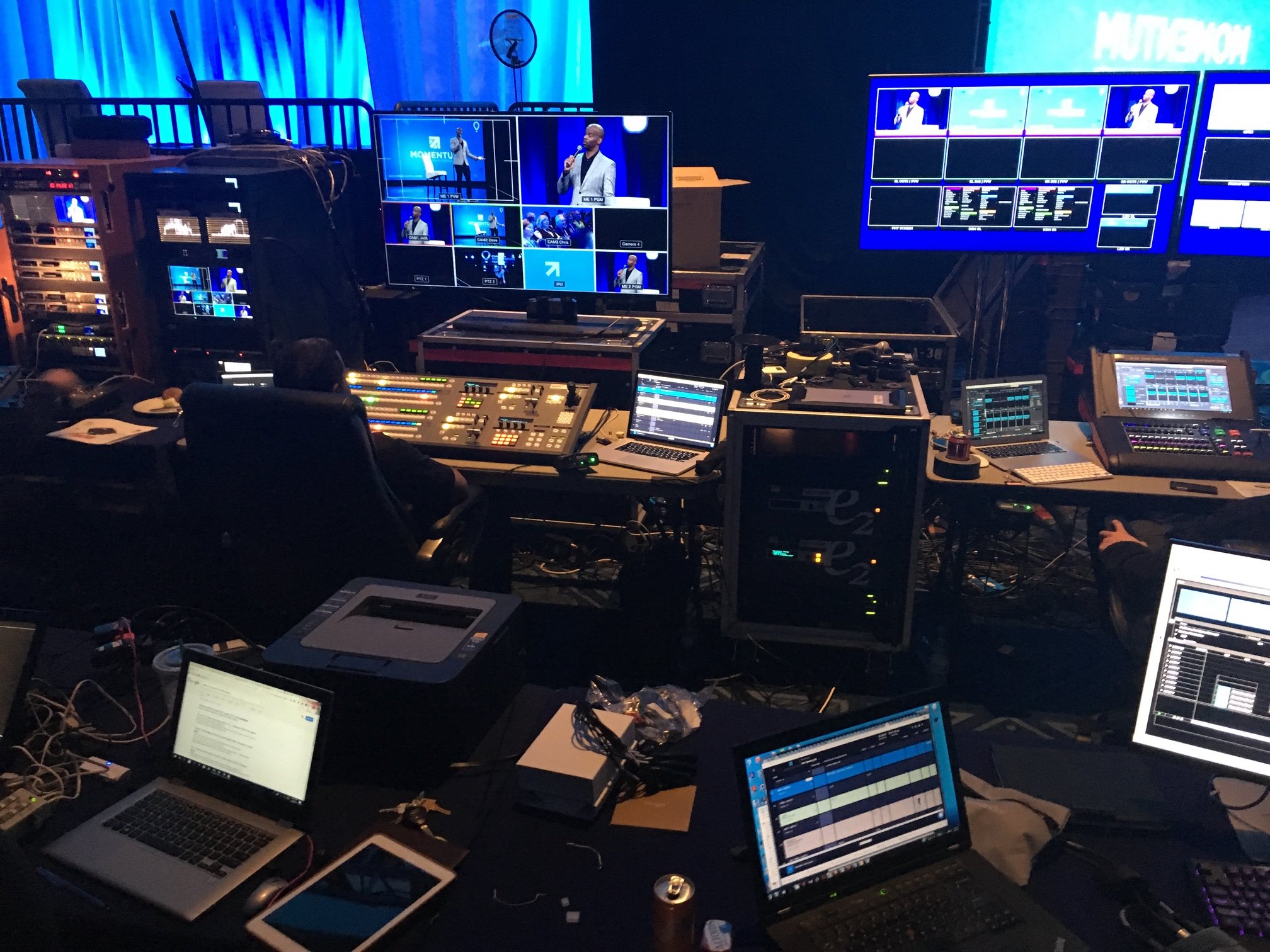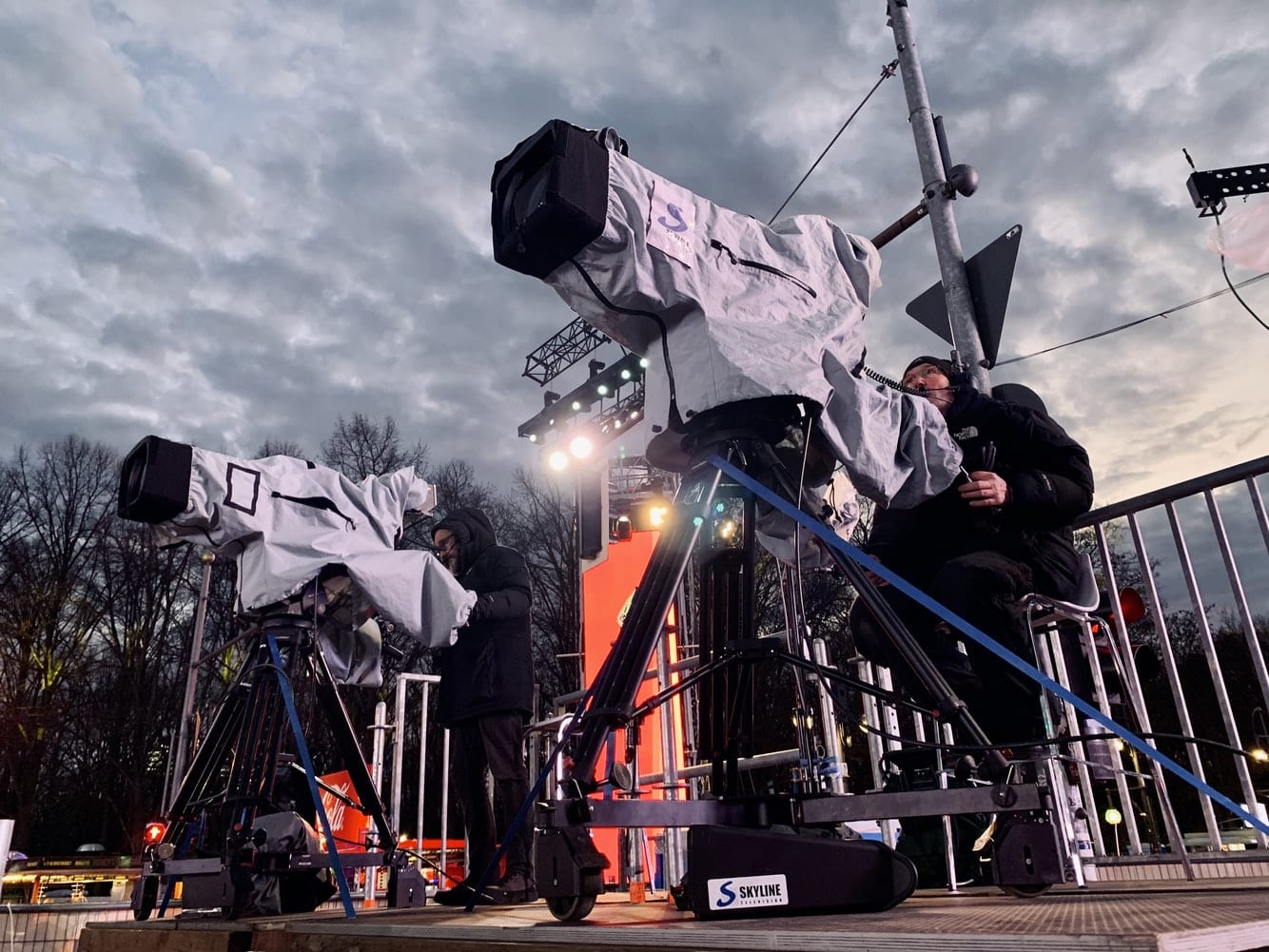Understanding Event Production: Why It Is Important for Effective Celebrations
Event production plays a critical duty fit successful events. It involves careful planning, control, and execution to guarantee every information lines up with the event's vision. This process not just boosts participant experiences yet additionally promotes meaningful links amongst individuals. Understanding the ins and outs of event production can considerably affect the general outcome. What are the vital components that contribute to a successful event, and how can they be efficiently handled?
The Duty of Event Production in Creating Unforgettable Experiences
Although numerous elements contribute to the success of an occasion, event production plays a pivotal duty in crafting memorable experiences. This multifaceted procedure includes different aspects, including planning, logistics, and execution. Efficient event production assurances that every information straightens with the overall vision, developing a seamless circulation that mesmerizes attendees. By working with timelines, taking care of sources, and managing technological facets, event producers establish a foundation for impactful experiences.Moreover, they curate atmospheres that reverberate with the target market, boosting interaction and emotional link. From picking suitable venues to integrating cutting-edge modern technology, the choices made during production significantly influence just how attendees view and bear in mind the event. By prioritizing quality and focus to detail, event production transforms regular events right into phenomenal moments, leaving enduring perceptions. Inevitably, the skillful orchestration of these components specifies the significance of an event, showcasing the importance of expert event production in attaining remarkable results.
Trick Elements of Effective Event Production
Efficient event production depends upon a number of essential elements that ensure success. Preparation and control establish a strong structure, while technological setup needs resolve logistical needs. Furthermore, applying target market interaction approaches boosts the overall experience, making the event memorable.
Planning and Control
Preparation and control function as the backbone of successful event production, making sure that every detail lines up flawlessly to create a remarkable experience. Effective preparation includes establishing a clear vision and objectives, while sychronisation involves the precise company of logistics, schedules, and sources. A well-defined timeline is necessary, leading all stakeholders via vital milestones and tasks. Communication plays a crucial function, fostering partnership amongst staff member, suppliers, and place staff. Routine meetings and updates aid to address challenges without delay, making certain that every person remains straightened with the event goals. Inevitably, a structured method to planning and coordination not only improves efficiency but additionally substantially adds to the overall success and pleasure of the event for guests and coordinators alike.
Technical Configuration Requirements
A successful event relies heavily on its technological setup demands, which encompass necessary elements such as audio-visual equipment, lights, hosting, and connectivity. Audio-visual devices consists of microphones, audio speakers, and projectors, ensuring that presentations and performances are provided clearly. Proper illumination enhances the atmosphere and highlights crucial areas, while presenting provides the needed system for audio speakers and entertainers. Connectivity, including Wi-Fi and electrical access, is vital for seamless interaction and modern technology integration. Each component has to be thoroughly prepared and performed, customized to the event's details demands. Inadequate technological arrangements can lead to interruptions, negatively impacting the total experience for attendees, highlighting the significance of comprehensive preparation and focus to information in event production.
Audience Engagement Approaches

The Relevance of Planning and Coordination
Planning and control are crucial to the success of any kind of event production. Efficient timeline management, resource appropriation techniques, and team interaction characteristics play important functions in guaranteeing that all elements collaborated seamlessly. Without an organized approach to these facets, events risk dealing with hold-ups, budget plan overruns, and miscommunication among group members.
Effective Timeline Management


While successful event production typically hinges on creativity and execution, effective timeline monitoring remains a crucial component that can not be ignored. A well-structured timeline works as the backbone of any event, making certain that each stage is carried out in a prompt manner. It enables the sychronisation of various jobs, from place configuration to visitor arrivals, while preventing potential traffic jams. By plainly describing deadlines and responsibilities, event organizers can preserve focus and adapt to unexpected difficulties. Furthermore, a thoroughly crafted timeline promotes communication among employee, advertising responsibility and cooperation. Inevitably, efficient timeline management not just boosts functional performance yet additionally contributes substantially to the general success and smooth execution of the event, leaving guests with a memorable experience.
Resource Allowance Approaches
Effective resource appropriation techniques are essential for the successful implementation of any kind of event. Proper planning allows event organizers to identify and distribute resources, such as finances, personnel, and products, in a way that optimizes efficiency. By assessing the specific needs of each aspect of the event, organizers can focus on jobs and allocate resources accordingly. Coordination among various departments ensures that all elements, from satisfying audiovisual requirements, are effectively supported. This strategic method not just reduces waste however also improves the overall experience for guests. Furthermore, anticipating potential obstacles and having backup plans in place enables smoother procedures. Eventually, effective resource appropriation adds significantly to attaining event purposes and ensuring a memorable celebration.
Team Communication Characteristics
Exactly how can seamless interaction amongst employee transform the event production procedure? Efficient communication is important for coordinating jobs, sharing updates, and addressing obstacles in real-time. When staff member take part in open discussion, they can quickly recognize prospective issues and establish options collaboratively, reducing hold-ups and misunderstandings. This vibrant fosters a cohesive setting where everyone recognizes their roles and duties, resulting in an extra synchronized initiative. In addition, normal check-ins and responses loopholes enhance responsibility and warranty positioning with the event's goals. By focusing on communication techniques, groups can streamline process, bolster morale, and eventually raise the overall top quality of the event. Successful events depend upon the capability to interact efficiently, making it pop over to this site a vital element of event production.
Enhancing Participant Engagement Through Innovative Layout
Creative design plays an important duty in boosting guest interaction at events, as it fosters an immersive environment that mesmerizes individuals' interest. By incorporating cutting-edge visuals, interactive components, and thematic style, event planners can produce unforgettable experiences that reverberate with participants. Thoughtful layout styles promote activity and exploration, encouraging guests to interact with displays and each other.Incorporating technology, such as enhanced reality or live polling, further enriches the experience, permitting real-time feedback and communication. In addition, sensory components like lights, audio, and aroma can stimulate feelings and produce a much more engaging atmosphere.The use storytelling through layout assists communicate the event's objective and message, making it more relatable for attendees. Inevitably, imaginative layout not just enhances engagement but additionally deepens links amongst participants, leaving a long-term impact that extends past the event itself. This tactical strategy to design is necessary for successful celebrations.
Managing Logistics for a Smooth Implementation
While the excitement of an event can attract participants in, handling logistics is vital to safeguard a smooth implementation. This entails thoroughly working with different elements, from location option and design to wedding catering and transportation. Efficient logistics management assures that all elements align, enabling a smooth circulation from enrollment to the final thought of the event.Additionally, a clear interaction plan amongst all stakeholders is important. This consists of staff, vendors, and volunteers, that have to be educated of their duties and responsibilities. Preparing for possible obstacles, such as devices failing or unanticipated climate condition, can additionally boost the event's success.Creating a thorough timeline aids keep the group on the right track and enables for prompt adjustments. Inevitably, well-managed logistics not only help with a satisfying experience for guests however likewise mirror the professionalism and trust and dependability of the organizers, contributing to the total success of the gathering.

The Influence of Technology on Event Production
What role does modern technology play fit modern-day event production? Technology has actually come to be a cornerstone of reliable event production, improving both preparing and implementation procedures. From advanced enrollment systems to interactive apps, modern technology improves guest administration and enhances interaction. Digital event platforms enable coordinators to get to wider target markets, breaking geographical barriers and facilitating hybrid gatherings that combine in-person and on the internet like this experiences.Additionally, audiovisual technologies, such as high-definition displays and audio systems, raise the high quality of presentations and performances, making sure a memorable experience for attendees - event production charlotte. Social media combination enables real-time feedback and interaction, cultivating community engagement before, during, and after the event. Moreover, data analytics tools aid organizers in keeping track of participant behavior and choices, making it possible for tailored experiences that resonate with varied target markets. Generally, the assimilation of technology in event production not only enhances functional effectiveness yet additionally improves attendee experiences, ultimately adding to the success of the event
Reviewing Success: Gauging the Outcomes of Your Event
Success in event production rests on efficient assessment, which includes determining a variety of outcomes to examine the total influence of an event. To achieve this, coordinators can utilize both qualitative and quantitative metrics. Quantitative steps may consist of participation figures, ticket sales, and profits generated, while qualitative assessments might entail participant contentment surveys and feedback forms.Additionally, assessing social media engagement and media insurance coverage can give understandings into the event's reach and brand impact. Contrasting these metrics versus predefined goals helps determine if the purposes were met.Furthermore, post-event debriefs with the preparation team can reveal lessons found out and areas for improvement. By methodically evaluating these results, event manufacturers can improve future events, ensuring continual growth and success. Ultimately, a detailed assessment not only highlights accomplishments but additionally notifies critical decisions for succeeding events, fostering a society of quality in event production.
Frequently Asked Inquiries
What Certifications Should an Occasion Producer Have?
Event producers need to possess strong business skills, imagination, and effective interaction capacities. A background in job management, budgeting, and settlement is vital. Pertinent certifications and experience in varied event kinds further enhance their certifications.
How Can I Reduce Event Production Expenses Properly?
To efficiently lower event production costs, one can enhance supplier selection, discuss agreements, utilize internal sources, focus on important components, apply technology for efficiency, and check out sponsorship possibilities to offset expenditures without compromising quality.
What Are the Typical Obstacles in Event Production?
Typical obstacles here are the findings in event production include budget plan restraints, logistical sychronisation, vendor administration, time restrictions, attendee involvement, technical difficulties, and unexpected conditions - event production charlotte. Each factor can significantly impact the total success and smooth implementation of the event
Exactly how Do I Choose the Right Place for My Event?
Picking the right place involves thinking about aspects such as place, capability, features, and spending plan. In addition, assessing accessibility and setting guarantees the chosen area straightens with the event's objectives and improves the overall attendee experience.
What Is the Common Timeline for Planning an Event?
The normal timeline for intending an event differs, yet usually consists of phases such as idea development, venue choice, supplier sychronisation, promotion, and last preparations, frequently spanning a number of months to assure a successful execution.